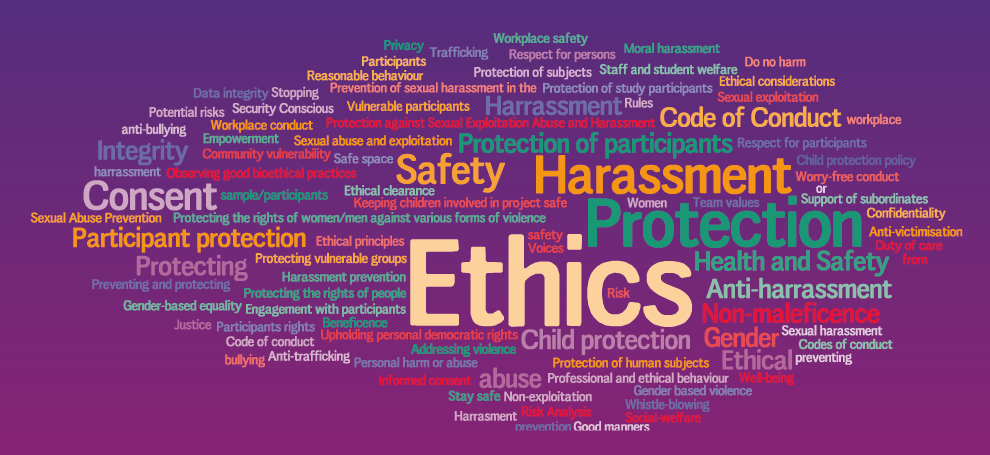Professor Alex Balch, Dr Surekha Garimella, Dr Bintu Mansaray, Linnea Renton MPH, Adriana Smith MPH, Dr Leona Vaughn – University of Liverpool Consultation Delivery Team
Executive Summary
Background
Many universities and research institutes have a long history of engagement in research linked to development. However, new funding opportunities (such as the Global Challenges Research Fund and others) have recently encouraged the entry of a range of new actors, bringing some of them into unfamiliar territory regarding safeguarding policy, practice and partnerships in an international context. At the same time, in response to widely publicised cases of sexual abuse, exploitation and harassment (SEAH) in the wider development sector, there has been an urgent focus on – and an evolving understanding of – concepts of vulnerability, risk, harm and power relations that are also relevant to those carrying out or participating in international development research.
Five leading UK research funders who are members of the UK Collaborative on Development Research (UKCDR), namely the Department for International Development (DFID), Department for Business, Energy and Industrial Strategy, Department of Health and Social Care, UK Research and Innovation (UKRI) and the Wellcome Trust, have committed publicly to tackle incidents of harm and abuse in international development research and to raise standards. To gauge the particular challenges that arise in development research, identify existing guidance and review its implementation, UKCDR commissioned an independent evidence review led by Dr David Orr of the University of Sussex, the outcome of which was published in June 2019 along with a briefing paper outlining draft principles and good practice guidance.
In line with the “spirit of inclusiveness and mutual learning, with attention to risk of unintended harms that could arise from dictating standards” (draft principle 5), UKCDR wished to go beyond the focus on UK context and stakeholders in Phase 1 to consult more widely on the proposed principles and guidance. In October 2019, therefore, it commissioned a team led by the University of Liverpool (UoL) in partnership with the Liverpool School of Tropical Medicine (LSTM) to conduct a consultation with researchers and research partners, including those in low- and middle-income countries (LMICs), on their understanding and application of safeguarding concepts and principles.
